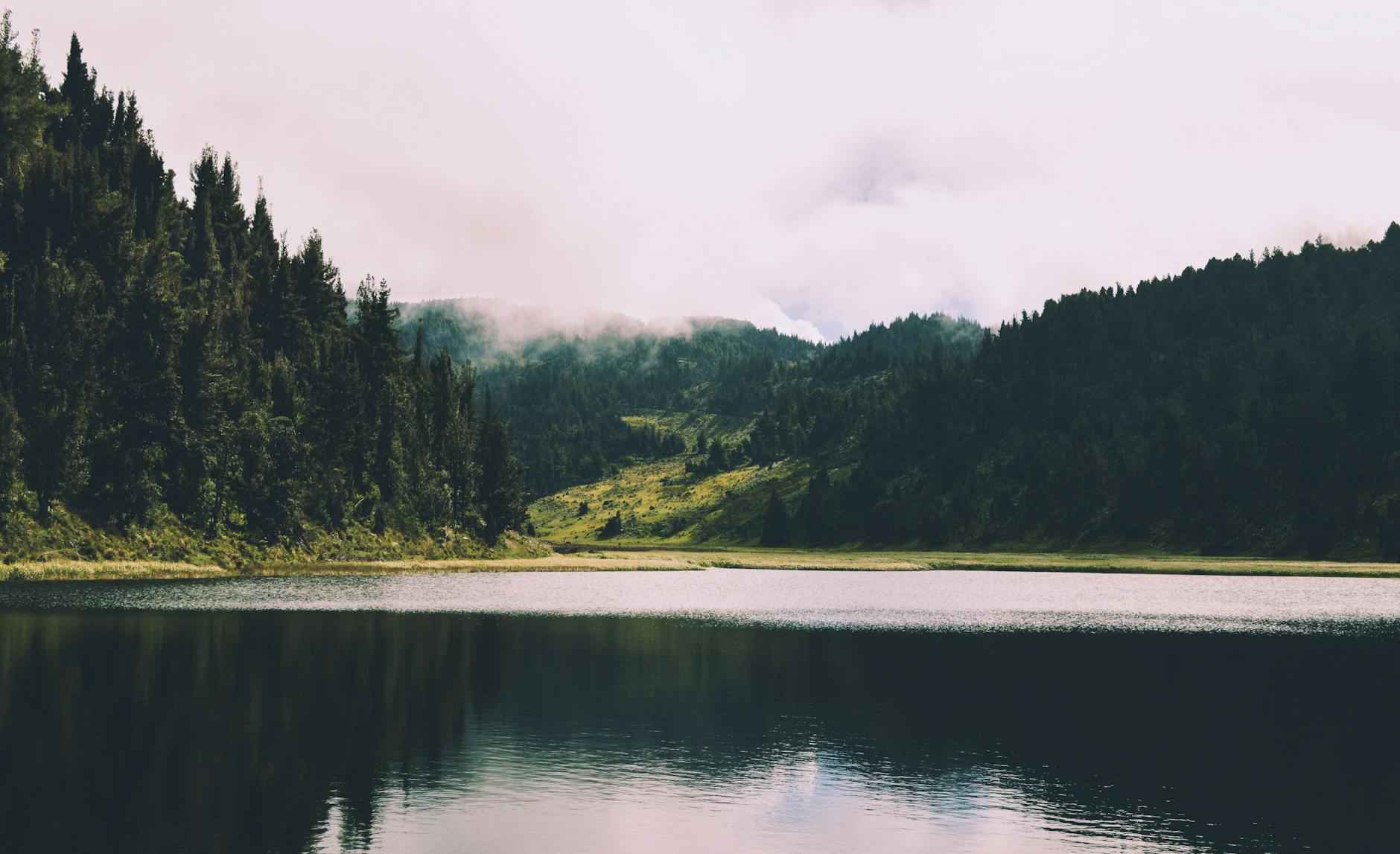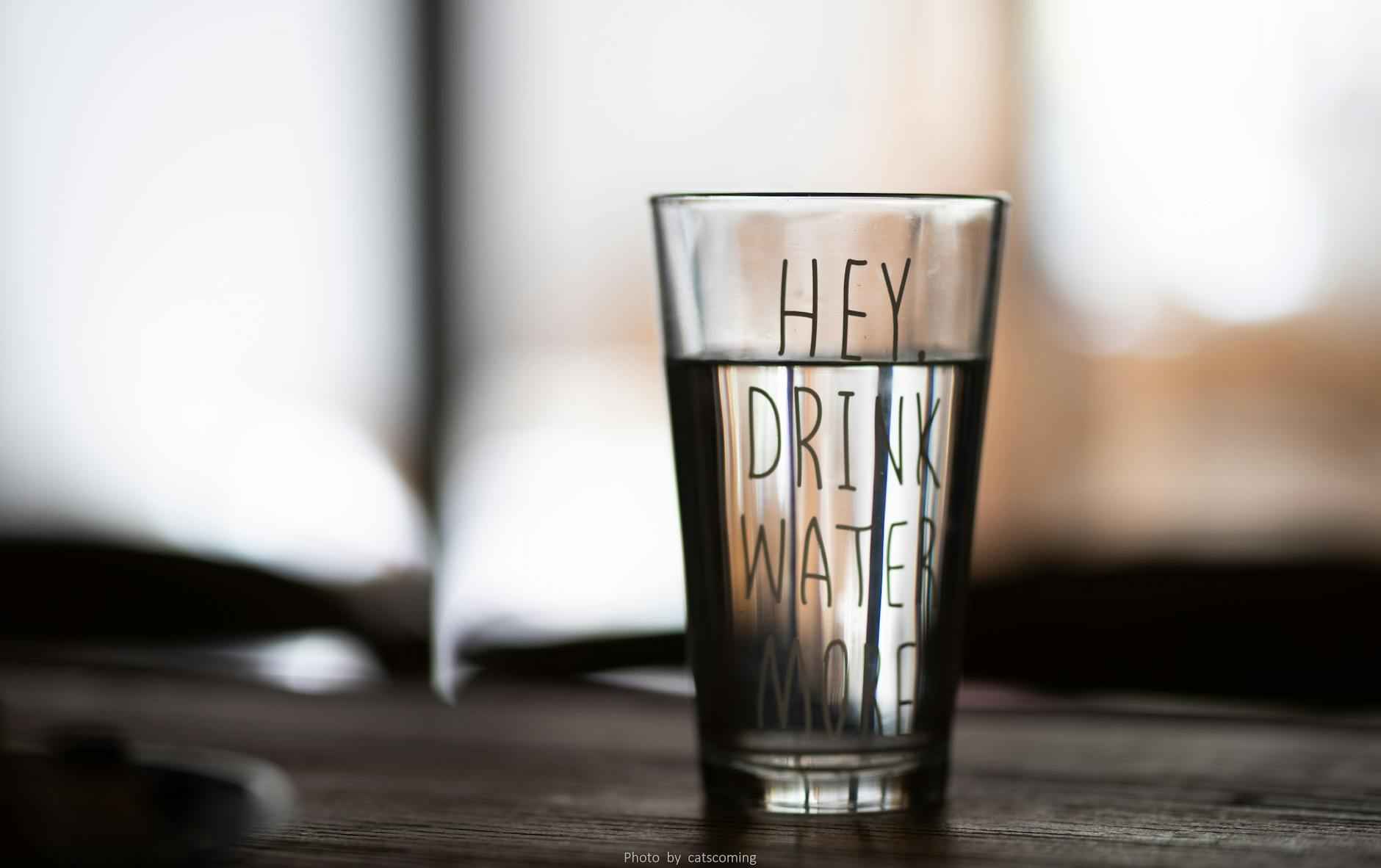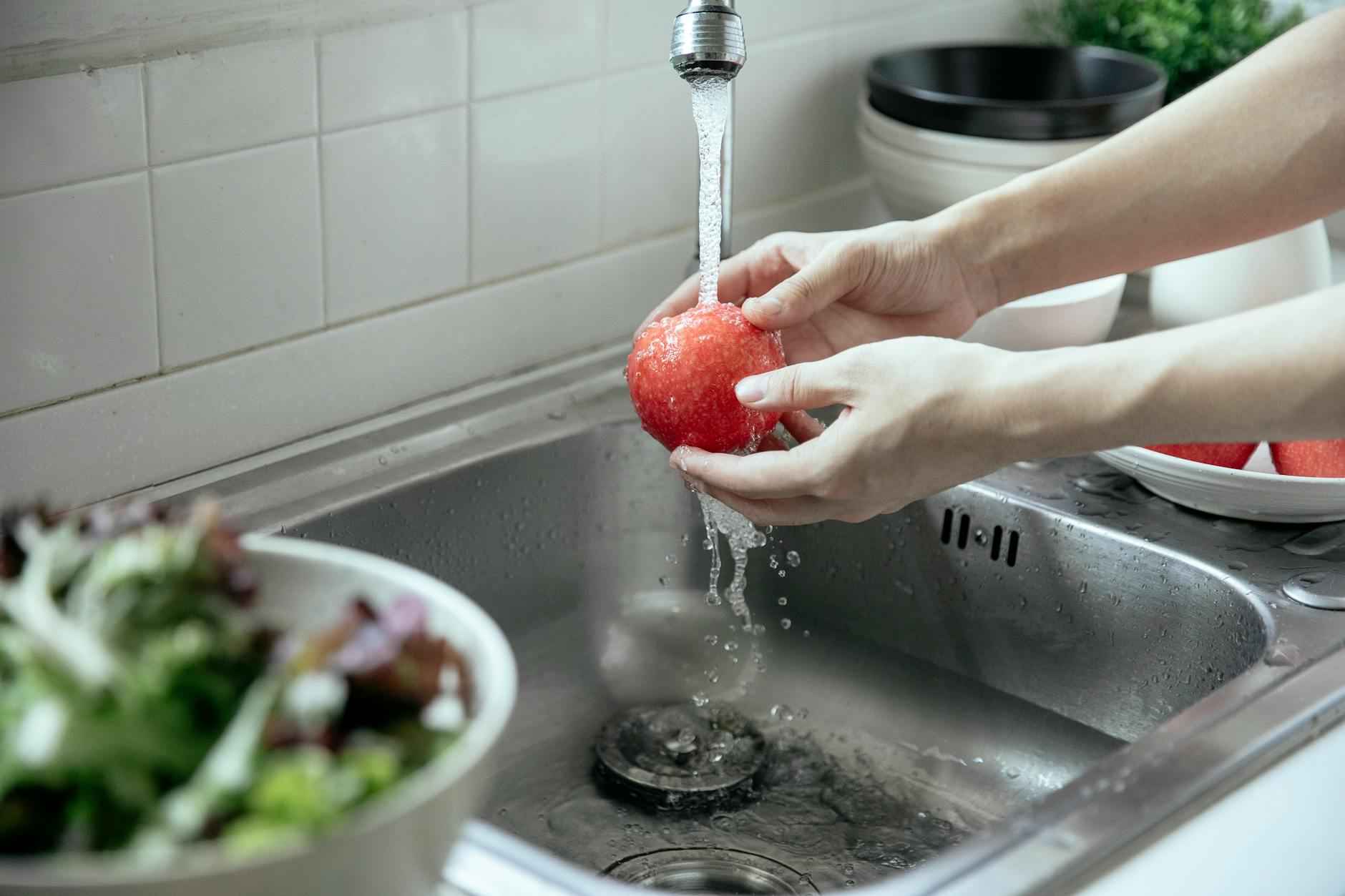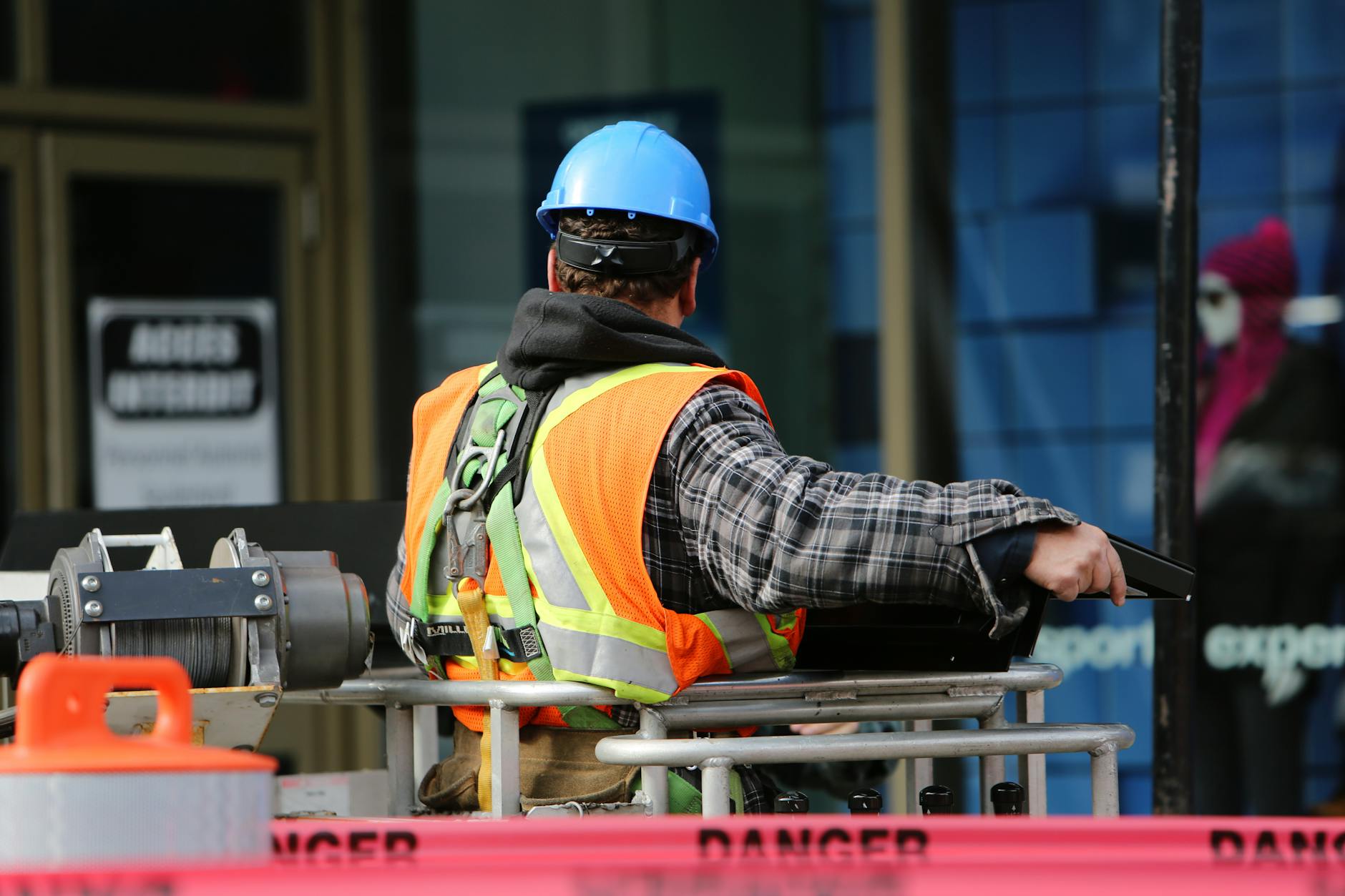This article dives into the murky waters of London’s tap water. Is it safe? Well, let’s explore, but I’m not really sure why it matters, to be honest. I mean, it’s just water, right? But then again, it’s not like we’re living in a fairy tale where everything is sparkling and pure. So, let’s get into it, shall we?
Understanding London’s Water Supply
London’s water comes from rivers and reservoirs, but like, how does that even work? It’s kinda complicated, but I’ll try to break it down for you. Basically, the water is collected from sources like the Thames and the Lea rivers, then treated at various plants. But then again, I’m not really an expert, so don’t take my word for gospel.
Water Quality Standards
There are strict regulations for drinking water quality, but sometimes I wonder if they actually follow them. I mean, who’s checking, right? The UK government and the EU set these standards, but I’m not really sure if they’re always on the ball. It’s like, do they really care about our health? I mean, it’s important, right?
| Contaminant | Possible Source | Health Risks |
|---|---|---|
| Lead | Old pipes | Neurological issues |
| Chlorine | Water treatment | Skin irritation |
| Microbial contaminants | Water sources | Gastrointestinal illnesses |
What Are The Contaminants?
You might be wondering what’s actually in the water. Well, let’s just say it’s not all sunshine and rainbows. From lead to chlorine, the list of potential contaminants is kinda long. I guess it’s like a buffet of grossness, but not the good kind. Lead levels can be sneaky, especially in older pipes. It’s like, “Surprise! You thought you were drinking water, but nope!” And then there’s chlorine, which is added for disinfection, but some people think it’s just a fancy way to say “bleach.” Not really sure about that, but it’s a thought.
Public Perception of Tap Water
People have mixed feelings about tap water in London. Some love it, some avoid it like the plague. I mean, safety is subjective, right? Some say it’s fine, others say, “No way, Jose!” It’s like a game of Russian roulette. Many Londoners don’t trust the tap water, and honestly, can you blame them? I feel like it’s a trust fall gone wrong.
Health Risks of Drinking Tap Water
There are potential health risks, but how serious are they? I mean, it’s just water, right? Some might experience stomach issues, but who knows if it’s the water or that dodgy takeaway? It’s a real head-scratcher, honestly. Long-term consumption of contaminated water can lead to serious health problems. It’s like, “Thanks for the gift that keeps on giving!”
Alternatives to Tap Water
If you’re not feeling the tap water vibes, what are your options? Well, let’s explore some alternatives. Bottled water is an option, but it can be pricey. Plus, all that plastic is, like, super bad for the environment. Investing in a water filter can be a good compromise. It’s like giving your water a spa day, but is it really worth it?
Conclusion: Should You Drink It?
In the end, it’s up to you. Is London’s tap water safe? Maybe, maybe not. But hey, it’s your call! Just remember to stay hydrated, whatever you choose!

Understanding London’s Water Supply
So, like, London’s water supply is kinda a big deal, right? I mean, it’s not just about turning on the tap and hoping for the best. The water comes from rivers and reservoirs, which sounds simple, but it’s actually more complicated than you’d think. Let’s break it down a bit, shall we?
First off, the main rivers that supply London are the River Thames and the River Lea. These rivers are like the lifeblood of the city, providing a significant portion of the drinking water. But, here’s the kicker: the water has to go through a bunch of processes before it’s safe to drink. It’s not just a matter of scooping it up and bottling it, you know?
Now, you might be wondering how this whole process works. Well, it starts with collecting the water from these rivers, which is then sent to treatment plants. Here, it undergoes several stages of purification, including filtration and disinfection. You know, like giving it a good scrub before it hits your glass. But honestly, how effective is that? I mean, who’s really checking all the details?
| Water Treatment Stages | Description |
|---|---|
| Collection | Water is gathered from rivers and reservoirs. |
| Filtration | Particles and contaminants are removed. |
| Disinfection | Chlorine or UV light is used to kill bacteria. |
| Distribution | Water is sent through pipes to homes and businesses. |
After treatment, the water is sent through a complex system of pipes to reach households across London. And here’s where it gets a bit dodgy. Some of those pipes are super old, which can lead to contamination. Like, who thought it was a good idea to use pipes that are older than my grandma? It’s like playing a game of “Will I get sick today?”
Now, don’t get me wrong; London has some strict regulations in place. The UK government and the EU set standards for drinking water quality. But I’m not really sure if they’re always on top of things. I mean, it’s like trusting your friend to keep your secrets—how often does that actually work out?
And then there’s the whole issue of regular testing. They say water is tested frequently, but honestly, how often do they actually do it? It’s not like they’re going to shout from the rooftops if something’s wrong, right? It’s like, “Surprise! Your water might be contaminated!”
In conclusion, understanding London’s water supply is essential, but it’s also a bit of a headache. There’s a lot going on behind the scenes, and while the system is designed to keep us safe, it’s hard not to feel a little skeptical. So, next time you fill up your glass, just remember: it’s a complicated world out there, and maybe it’s just me, but I feel like I’d rather stick to bottled water sometimes.

Water Quality Standards
When it comes to , you might think there’s a solid system in place. But honestly, I’m not really sure if that’s the case. I mean, there are regulations, right? But, like, who’s actually keeping tabs on them? It’s kinda like having a referee at a football game who’s busy scrolling through their phone instead of watching the play. So, let’s dive into this murky topic and see what’s really going on.
First off, the UK government and the EU are the big players in setting these standards. They’ve got a whole bunch of rules designed to keep our drinking water safe. But here’s the kicker: are they really on the ball? Sometimes I feel like they’re more focused on paperwork than actual health. Like, do they even care about us? I mean, it’s a big question mark.
| Regulatory Body | Responsibilities |
|---|---|
| UK Government | Sets drinking water quality standards |
| EU | Oversees compliance and regulations |
Now, let’s talk about the water quality regulations. They’re supposed to ensure that our water is safe, but I can’t help but feel there’s always some loophole lurking around. You know how they say to read the fine print? Yeah, I feel like that’s where the real story lies. It’s like, “Surprise! We didn’t mention that little detail about contamination.”
- Lead levels in older pipes
- Chlorine used for disinfection
- Microplastics from various sources
And then there’s the whole regular testing thing. They say water is tested regularly, but I’m left wondering how often that really happens. It’s not like they’re going to send us a newsletter saying, “Hey, we found something funky in the water today!” So, I guess we just have to trust them? Not really sure about that.
Speaking of trust, let’s address the public perception of tap water. Some Londoners are all about that tap life, while others wouldn’t touch it with a ten-foot pole. It’s like a game of Russian roulette. You never know what you’re gonna get! Is it safe or not? Depends on who you ask, I suppose.
And let’s not forget about the health risks. Sure, some people might experience short-term effects like stomach issues, but how do we know if it’s the water or that dodgy takeaway from last night? It’s a real head-scratcher. And long-term? Well, that’s a whole other can of worms. Drinking contaminated water over time can lead to serious health problems. It’s like a gift that keeps on giving, but not in a good way.
So, if you’re not feeling the tap water vibes, what are your alternatives? Bottled water is an option, but it’s pricey and, let’s face it, not great for the environment. Investing in a water filter can be a good compromise, but is it really worth it? You’re basically giving your water a spa day, but does it actually make a difference?
In conclusion, should you drink the tap water? Well, that’s totally up to you. Is London’s tap water safe? Maybe, maybe not. But hey, it’s your call. Just remember, knowledge is power, and sometimes it’s better to be safe than sorry!
Who Sets The Standards?
The UK government and the EU, they’re the ones setting the drinking water standards, but honestly, I’m not really sure if they’re always on the ball. It’s like, do they really care about our health? Sometimes it feels like they’re just ticking boxes instead of actually ensuring our water is safe. I mean, who’s really watching the watchers, right?
Regulatory Bodies
- UK Drinking Water Inspectorate (DWI)
- European Food Safety Authority (EFSA)
- Local Water Companies
So, these bodies are supposed to monitor and enforce regulations, but let’s be real. How often do they get it right? I mean, it’s not like they’re going to publish a big ol’ report saying, “Oops, we messed up!”
Water Quality Regulations
There’s a whole bunch of regulations in place to make sure our drinking water is safe. But honestly, it feels like there’s always a loophole somewhere. You know, like those fine print things no one reads. Sometimes I think they just throw in a bunch of legal jargon to confuse us.
| Regulation | Description |
|---|---|
| Water Supply (Water Quality) Regulations 2016 | Sets standards for drinking water quality in the UK. |
| EU Drinking Water Directive | Establishes quality standards for drinking water across EU member states. |
Regular Testing
Water is supposed to be tested regularly, or so they say. But honestly, how often do they actually do it? It’s like, “Hey, we tested it last month, that’s good enough, right?” I mean, it’s not like they’re going to tell us if it’s bad, right? Who wants to panic over a little thing like drinking water?
Public Trust Issues
Many people in London don’t trust the tap water, and honestly, can you blame them? I feel like it’s a trust fall gone wrong. Some folks are like, “I’d rather drink from a puddle than risk it with tap water!” It’s a real mixed bag of opinions. Like, some love it, some avoid it like the plague.
Conclusion
So, who sets the standards? Well, it’s a bit of a mess, to be honest. The regulations are there, but sometimes I wonder if they’re actually being enforced. Maybe it’s just me, but I feel like we deserve better. In the end, it’s up to you whether you trust the system or not. Just remember, always stay informed, because knowledge is power, right?
Water Quality Regulations
are supposed to keep us safe, right? I mean, that’s what they tell us. But honestly, I can’t shake the feeling that there’s always a loophole lurking somewhere in the fine print. You know, those tiny details that no one bothers to read? Yeah, those.
So, let’s break it down a bit. The regulations are set by the government and various health organizations, but who’s really checking if they’re being followed? It’s like leaving the keys to the candy store with the kids. Not really sure why this matters, but it kinda does, doesn’t it?
Here’s a little table to show you what’s at stake:
| Contaminant | Health Risks | Possible Sources |
|---|---|---|
| Lead | Neurological issues, especially in children | Old pipes, plumbing fixtures |
| Chlorine | Skin irritation, potential long-term effects | Water treatment processes |
| Microbial contaminants | Gastrointestinal illnesses | Contaminated sources, poor sanitation |
Now, you might be asking yourself, “Who sets these standards anyway?” Well, it’s a mix of the UK government and the EU. But let’s be real, do they even care about our health? I mean, it’s like they’re doing the bare minimum, right? Sometimes I feel like they’re more focused on paperwork than actual safety.
Regular testing is supposed to happen, but how often do they really do it? I mean, it’s not like they’re gonna call us up and say, “Hey, guess what? Your water’s got a little something special in it today!” No way. It’s like playing a game of roulette with your health.
And let’s talk about the public perception of tap water. Some people swear by it, while others wouldn’t touch it with a ten-foot pole. I guess it’s all about trust, huh? Many Londoners are like, “No thanks, I’ll stick to bottled water.” And who can blame them? It’s like a trust fall that went horribly wrong.
- Short-Term Effects: Some people might feel a bit queasy after drinking, but is it the water or that dodgy takeaway from last night? Who knows!
- Long-Term Effects: Drinking contaminated water can lead to serious health problems. It’s like a gift that keeps on giving, but not in a good way.
So, what are the alternatives if you’re not feeling the tap water vibes? Bottled water is one option, but it can get pricey. Plus, all that plastic is bad for the environment. Maybe it’s just me, but I feel like we’re trading one problem for another.
Water filters are also a thing. They’re like giving your water a spa day, but is it really worth the investment? I mean, who has the time to figure that out?
In conclusion, should you drink London’s tap water? Well, that’s totally up to you. It might be fine, or it might not be. It’s like a mystery wrapped in an enigma. So, good luck with that!
Regular Testing
of tap water is a topic that gets thrown around a lot, but honestly, how often is it really happening? You’d think with all the fancy technology we have, they’d be testing it like every hour or something. But nope! It’s more like they do it, and then they forget about it for a while. I mean, it’s not like they’re gonna come out and say, “Hey, guess what? Your water’s toxic!” right? That’d be a real party pooper.
So, here’s the deal: the water quality is supposed to be checked regularly, but the frequency can vary. I’ve heard they do it daily in some places, but then again, you gotta wonder, are they just checking the basics? Like, what about those sneaky contaminants that could be lurking around? It’s like having a house party and only checking the front door while the back door is wide open for troublemakers.
| Testing Frequency | What’s Tested | Potential Issues |
|---|---|---|
| Daily | Bacteria, pH levels | Short-term health effects |
| Weekly | Chlorine levels, lead | Long-term health risks |
| Monthly | Heavy metals, nitrates | Environmental concerns |
Now, I’m not saying that the folks in charge are slacking off, but it feels like there’s a bit of a trust issue here. Like, who’s really keeping an eye on this? Maybe it’s just me, but I feel like the average Joe doesn’t have a clue about how often their water’s being tested. And when they do find out, it’s usually some sort of crisis that gets people talking. You know, like, “Did you hear about the lead in the water?”
- Public Awareness: Not everyone knows how often their water is tested.
- Transparency: Water companies don’t always share the results.
- Accountability: Who really checks the checkers?
And let’s be real here. If you think about it, it’s kinda like that friend who says they’re watching their diet but then you catch them munching on a donut. I mean, are they really testing for everything? Or are they just tickin’ boxes to say they did? It’s like, “Congratulations, you’ve passed the bare minimum!”
There’s also the fact that some contaminants don’t just show up overnight. They can build up over time, and if the testing isn’t frequent enough, you might be sipping on some not-so-great stuff without even knowing it. It’s like a game of hide and seek, but instead of kids, it’s harmful substances hiding in your glass.
In conclusion, while is supposed to keep our water safe, the reality might be a bit murkier than we’d like to admit. It’s a bit of a gamble, really. So, next time you turn on the tap, maybe think twice about what’s flowing out. Is it safe? Well, that’s the million-dollar question, isn’t it? But hey, it’s your call, and maybe you’ll choose to keep sipping or consider some alternatives.
What Are The Contaminants?
When it comes to drinking water in London, you might be asking yourself, what’s really lurking in that glass? Well, let me tell you, it’s not all sunshine and rainbows, folks. Sure, the city has some fancy treatment plants and all that jazz, but sometimes I wonder if they actually do their job properly. I mean, who’s really keeping an eye on things, right?
So, first off, let’s talk about common contaminants. You’d be surprised at what can end up in your tap water. Here’s a quick rundown:
| Contaminant | Source | Health Risks |
|---|---|---|
| Lead | Old pipes | Brain damage, developmental issues |
| Chlorine | Disinfection | Skin irritation, respiratory issues |
| Pesticides | Runoff | Hormonal disruption |
Now, lead is a sneaky little devil. It can creep in from those ancient pipes that are still hanging around in some of London’s older buildings. Like, you think you’re just drinking water, and then bam! Surprise lead cocktail. Not exactly the refreshing drink you were hoping for, right?
Then there’s chlorine. It’s added to kill bacteria, but some folks are like, “Wait a minute, is this just bleach?” I mean, it’s not like we’re trying to clean our floors here! And, honestly, who wants to drink something that smells like a swimming pool? Not really my idea of a good time.
Let’s not forget about pesticides. You know, the stuff they spray on crops to keep bugs away? Yeah, that can end up in your glass too. It’s like, “Thanks for the added bonus of hormonal disruption with my morning coffee!”
So, you might be thinking, “Okay, but how often do they even test for these things?” Well, they say they do it regularly, but I’m not exactly holding my breath. It’s like saying you’re going to the gym every week but only showing up once a month. You know what I mean?
And let’s be real, the public perception of tap water in London is all over the place. Some people drink it like it’s the elixir of life, while others wouldn’t touch it with a ten-foot pole. I mean, can you blame them? It’s a bit like playing Russian roulette with your health. Not exactly comforting.
- Some people swear by it.
- Others think it’s a recipe for disaster.
- And then there are those who just avoid it like the plague.
In conclusion, if you’re wondering what’s really in your tap water, the answer is a mixed bag of contaminants that might make you think twice before sipping. So, should you drink it? Maybe, maybe not. But hey, at least now you know what’s swimming around in there, right? Just remember, knowledge is power, and sometimes ignorance is bliss, especially when it comes to drinking water!
Common Contaminants Found
So, here we are, diving into the not-so-glamorous world of tap water contaminants. It’s like, you know, a surprise party where the surprise is just a bunch of gross stuff you didn’t want to find out about. But hey, knowledge is power, right? Or something like that. Let’s break down what’s lurking in London’s tap water, and trust me, it’s a bit of a mixed bag.
| Contaminant | Source | Health Risks |
|---|---|---|
| Lead | Old pipes, plumbing | Neurological issues, developmental delays |
| Chlorine | Water treatment | Skin irritation, respiratory issues |
| Microplastics | Pollution, bottled water | Unknown long-term effects |
| Fluoride | Dental health additives | Possible thyroid issues |
First up, we gotta talk about lead. This little troublemaker can sneak into your glass if you live in an older building with ancient pipes. It’s like, “Surprise! You thought you were drinking water, but nope! You’re getting a side of lead.” Not cool, right? Lead exposure is super serious, especially for kids, causing all sorts of neurological issues. So, if you’re in an older flat, maybe think twice before chugging that tap water.
Next on the list is chlorine. Now, chlorine is added to our water for disinfection, but let’s be real, it kinda smells like a swimming pool. Some folks are like, “Ew, this tastes like bleach!” Not really sure why they think that’s okay, but it’s a thing. While it does kill harmful bacteria, it can also cause skin irritation and some respiratory issues. So, you might wanna reconsider if you’re planning to have a long shower.
Then we have microplastics. Yep, you heard that right. Tiny bits of plastic are showing up in our water. It’s like, “Great, just what I needed! A sprinkle of pollution in my hydration.” The long-term effects of microplastics are still kinda unknown, which is super comforting, right? Maybe it’s just me, but I feel like we should be concerned about that.
And don’t forget about fluoride. While it’s supposed to help with dental health, some studies suggest it might mess with your thyroid. It’s like, who knew trying to have nice teeth could come with a side of health issues? Makes you think twice about that shiny smile.
- Watch out for lead if you’re in an old building.
- Chlorine might make your water taste funky.
- Microplastics are a new concern we didn’t ask for.
- Fluoride can be a double-edged sword.
In conclusion, the list of potential contaminants is kinda long, and it’s not exactly a buffet of goodness. It’s more like a buffet of grossness, but not the good kind. So, whether you’re a tap water lover or a bottled water enthusiast, it’s important to stay informed and maybe invest in a good water filter. Because, let’s face it, nobody wants to drink a cocktail of contaminants!
Lead Levels
Lead is one of those sneaky little contaminants that can lurk in your drinking water, especially if you live in an older home with, like, ancient pipes. Seriously, it’s like a game of hide and seek, but instead of a fun childhood memory, you’re left wondering if you’re actually drinking water or just some lead-infused potion. Imagine turning on your tap, expecting refreshing hydration, and then it’s like, “Surprise! You thought you were drinking water, but nope!”
Now, let’s get into the nitty-gritty of lead levels in tap water. It’s a big deal, or at least it should be. You see, lead can leach into your water supply from old pipes, and that’s not something you want to mess with. It’s just, like, not cool. The health risks associated with lead exposure are pretty serious, and it can affect your nervous system, especially in kids. So, if you’re a parent, this should really make you sit up and take notice.
| Health Effects of Lead Exposure | Age Group |
|---|---|
| Developmental delays | Children |
| High blood pressure | Adults |
| Kidney damage | All ages |
So, how do you know if your water is safe? Well, there are tests, but let’s be real, who actually does that? Maybe it’s just me, but I feel like most people are just like, “Eh, I’ll take my chances.” But honestly, that’s not a great strategy. If you live in a place with older plumbing systems, it’s worth checking. You can get a home test kit or hire a pro, but again, who has the time or money for that?
- Check your pipes: If they’re made of lead, you might want to think about replacing them.
- Use a water filter: Not all filters remove lead, so make sure you get one that does.
- Flush your tap: Let the water run for a minute before using it, especially if it’s been sitting for a while.
Now, I get it, some people are like, “Whatever, I’m fine.” But the truth is, lead is a sneaky little devil. You might not notice immediate effects, but over time, it can lead to some serious health issues. It’s like that friend who seems cool at first but turns out to be super toxic. You really don’t want that in your life—or your water.
In conclusion, while London’s tap water is generally considered safe, you’ve gotta be aware of the potential for lead contamination. It’s like a game of Russian roulette, but with your health. So, maybe take a moment to think about what’s flowing through your pipes. You don’t want to be left saying, “Oops, I didn’t know!” when it’s too late. After all, health is wealth, right?
Chlorine and Its Effects
So, let’s talk about chlorine in tap water. You know, that stuff they dump into our drinking water to make sure it’s, like, germ-free or whatever. But, honestly, it makes me wonder if it’s really doing more good than harm. I mean, we’re all familiar with the smell of chlorine from swimming pools, right? It’s kinda like a big red flag saying, “Hey, this is not natural!” But, is it really that bad? Not really sure why this matters, but I guess we should dig a little deeper.
What is Chlorine?
Chlorine is basically a chemical that’s used for disinfection. It’s like the bouncer at a club, keeping out the unwanted guests (a.k.a. bacteria and viruses). But, some folks are all like, “Wait a minute, isn’t this just a fancy way to say bleach?” And honestly, I can see where they’re coming from. It’s not exactly the most comforting thought to know that something you’re drinking is similar to what you use to clean your bathroom.
- Chlorine’s Purpose: Disinfecting water to kill harmful microorganisms.
- Common Misconception: Many think of it as bleach, which can be a bit alarming.
- Smell and Taste: The distinct smell can be off-putting for many people.
Health Risks of Chlorine
Okay, so here’s where it gets a little sketchy. Some studies have shown that long-term exposure to chlorine can lead to health issues, including respiratory problems and even some types of cancer. Yikes, right? But then again, I’m not a scientist, so take that with a grain of salt. Maybe it’s just me, but I feel like we’re all just guinea pigs in this big experiment called “modern living.”
| Health Risks | Possible Effects |
|---|---|
| Respiratory Issues | Can cause asthma or worsen existing conditions. |
| Skin Irritation | Some people report rashes or dryness. |
| Long-term Cancer Risks | Potential link to bladder and rectal cancers. |
Public Perception
Now, let’s get real for a second. People have some serious trust issues when it comes to drinking tap water. You’ve got some who are all about it, saying, “It’s fine, just drink it!” And then there are others who wouldn’t touch it with a ten-foot pole. It’s like a game of Russian roulette, and honestly, I’m not a fan of gambling with my health.
Some Londoners have even gone as far as to say they can taste the chlorine. Like, really? How does one even taste chlorine? But I guess if you’re sensitive to it, it makes sense. And then there’s the whole debate about bottled water versus tap water. Sure, bottled water is convenient, but it’s also, like, super bad for the environment. So, what’s the solution? I’m not really sure, but it feels like we’re stuck between a rock and a hard place.
Conclusion
In the end, the effects of chlorine in tap water are still a hot topic. Some say it’s essential for our health, while others are ready to ditch it altogether. So, should you be worried about chlorine? Maybe, maybe not. But hey, it’s your body, your choice, right?

Public Perception of Tap Water
in London is like a rollercoaster ride, honestly. Some folks are all about it, while others treat it like it’s the plague. I mean, it’s just water, right? But let’s dive into this whole situation because it’s kinda interesting, if you think about it.
First off, you gotta understand that Londoners have mixed feelings about their tap water. Some people swear by it, claiming it’s the best thing since sliced bread. They rave about how it’s fresh and clean, and even the taste is something they enjoy. But then there are those who wouldn’t touch it with a ten-foot pole. They’re like, “No way, Jose!” and opt for bottled water instead. It’s like, are they just being dramatic or do they have a point? Who knows!
Is it safe or not? That’s the million-dollar question. Some say it’s perfectly fine, while others are convinced it’s a health hazard waiting to happen. I mean, how do you even decide? It’s like playing a game of roulette with your health. And let’s be real, it’s not exactly a fun game to play.
| Pros of Tap Water | Cons of Tap Water |
|---|---|
| Convenient and accessible | Possible contaminants |
| Cost-effective | Chlorine taste |
| Environmentally friendly (less plastic) | Trust issues with quality |
Now, let’s talk about trust issues. It’s a big deal. Many Londoners just don’t trust the tap water, and honestly, can you blame them? With all the reports about contaminants and lead levels, it’s like, “Ugh, who wants to risk it?” It’s like a trust fall gone wrong, and nobody wants to be the one who falls flat on their face.
And speaking of contaminants, let’s get real for a second. You might be wondering what’s actually lurking in that glass of tap water. Well, it’s not all sunshine and rainbows, that’s for sure. From lead to chlorine, the list of potential nasties is kinda long. I mean, it’s like a buffet of grossness, but not the good kind.
- Lead: Can be sneaky, especially in older pipes. Surprise! You thought you were drinking water, but nope!
- Chlorine: Added for disinfection, but some people think it’s just a fancy way to say “bleach.”
- Other Chemicals: There might be traces of pesticides and pharmaceuticals. Yikes!
So, what’s the takeaway? Drinking tap water in London might be safe for some, but others are just not convinced. It’s like a gamble, and not everyone is willing to roll the dice. Maybe it’s just me, but I feel like it’s always better to be safe than sorry, right?
In conclusion, whether you’re team tap or team bottled, it’s ultimately your choice. Just remember to stay informed and make the decision that feels right for you. Because at the end of the day, your health is what matters most!
Is It Safe or Not?
I mean, when it comes to London’s tap water safety, the debate is as lively as a pub on a Friday night. Some folks are all like, “Yeah, it’s totally fine!” while others are clutching their bottled water like it’s a life raft in a stormy sea. Honestly, it’s like a game of Russian roulette, and I’m just here trying to figure out if I should take a sip or run for the hills.
First off, let’s talk about public perception. It’s a mixed bag, really. You’ve got people who swear by it, saying it’s the best thing since sliced bread, and then there’s the others who wouldn’t touch it with a ten-foot pole. It’s like, do they know something I don’t? Maybe it’s just me, but I feel like there’s a whole lot of skepticism floating around.
- Pro: Some studies show that London’s tap water is among the best in the world.
- Con: Others point to contaminants like lead and chlorine. Yikes!
Speaking of contaminants, let’s dive into that rabbit hole. I mean, who doesn’t love a good list of potential water contaminants? Here’s a little table to break it down:
| Contaminant | Source | Health Risks |
|---|---|---|
| Lead | Old pipes | Brain damage, developmental issues |
| Chlorine | Disinfection | Respiratory issues, skin irritation |
| Microplastics | Environmental pollution | Unknown long-term effects |
So, yeah, it’s not all sunshine and rainbows when it comes to what’s flowing from your tap. And let’s be real, how often do they actually test for these things? Not really sure why this matters, but I feel like it’s important to know what you’re drinking. I mean, if I wanted to play a game of “Guess What’s In My Water,” I’d just go back to college and drink whatever was in the fridge!
Now, let’s get into the nitty-gritty of trust issues. Many Londoners are like, “No way, Jose!” when it comes to trusting the tap. And honestly, can you blame them? With all the horror stories floating around, it’s like a trust fall gone wrong. You’re just waiting for someone to drop you right on your backside.
But, here’s a thought: maybe it’s not all bad? I mean, it’s just water, right? Some might experience stomach issues, but who knows if it’s the water or that dodgy takeaway from last weekend? It’s a real head-scratcher, honestly. And the long-term effects? Well, let’s just say it’s like a gift that keeps on giving, but not in a good way.
In conclusion, should you drink London’s tap water? That’s the million-dollar question. Maybe it’s fine, maybe it’s not. But hey, it’s your call! Just remember to do your research, stay informed, and maybe invest in a good water filter if you’re feeling a bit squeamish about it all. Because, at the end of the day, we all want to stay healthy, right?
Trust Issues
Many Londoners don’t trust the tap water, and honestly, can you blame them? I feel like it’s a trust fall gone wrong. It’s like, one minute you’re sipping water, and the next, you’re wondering if you should be checking for lead levels. The thought of drinking something that might have a hint of “mystery” in it is not exactly a comforting feeling. So, let’s dive into the trust issues surrounding London’s tap water and see what’s really going on.
First off, let’s talk about the perception of safety. You know, it’s kinda funny how people are all, “Yeah, I drink tap water,” until you mention something like lead or chlorine. Then, suddenly, it’s like you just suggested they drink poison. Some folks swear by it, while others wouldn’t touch it with a ten-foot pole. I mean, really, who’s right? Is it safe or not? It’s like a weird game of water roulette.
- Some people trust the water because they believe in the regulations.
- Others are skeptical and think it’s better to be safe than sorry.
- And then there are those who just drink bottled water like it’s going out of style.
Now, let’s get into the nitty-gritty. There’s a lot of talk about water quality standards, but do we really know if they’re enforced? I mean, who’s checking up on these things? Is it just a few bureaucrats sitting in a room somewhere saying, “Yep, looks good to me!”? I’m not really sure why this matters, but it feels like we’re just taking their word for it, right?
| Contaminants | Potential Effects |
|---|---|
| Lead | Can cause serious health problems, especially in children. |
| Chlorine | May cause skin irritations and has a distinct taste. |
| Microplastics | Long-term effects are still being studied. |
So, when you think about it, it’s kinda wild that many Londoners are still drinking this stuff. It’s like, “Hey, I’m thirsty, but also, is this water gonna give me a stomach ache?” It’s a real dilemma. And let’s not forget about the long-term health risks. You might be thinking, “Oh, it’s just water,” but if it’s contaminated, that’s a whole different ball game.
And then there’s the whole bottled water situation. Sure, it’s convenient, but have you seen the prices? It’s like they think we’re all millionaires or something. Plus, all that plastic isn’t doing the planet any favors. So, what’s the solution? Maybe investing in a water filter could be a good compromise. It’s like giving your water a spa day, but is it really worth it? Who knows!
In conclusion, should you drink London’s tap water? Well, it’s really up to you. If you’re feeling brave, go ahead. But if you’re like many Londoners who have with the tap, maybe stick to bottled or filtered options. Just remember, it’s your health on the line, so choose wisely!
Health Risks of Drinking Tap Water
So, let’s dive into the topic of . You know, it’s kinda funny how we take water for granted. I mean, it’s just water, right? But there’s a lot more to it than meets the eye. I’m not really sure why this matters, but apparently, it does. So, here we go!
First off, there are some potential health risks associated with drinking tap water, and it’s not just about the taste or how it smells. Like, did you know that some people have reported stomach issues after drinking tap water? It’s like, “Is it the water or that questionable takeout I had last night?” Honestly, who knows? It could be a real mystery.
Now, let’s talk about contaminants. There’s a whole buffet of nasty stuff that can be lurking in your glass of water. Here’s a quick list of some common ones:
- Lead – This is a sneaky little guy, especially in older pipes. It’s like, “Surprise! You thought you were hydrating, but nope!”
- Chlorine – Sure, it’s added for disinfection, but some folks think it’s just a fancy term for bleach. Yikes!
- Microorganisms – Yeah, those tiny critters can cause some serious health issues. Gross, right?
But wait, there’s more! The long-term effects of drinking contaminated tap water can be pretty serious. I mean, we’re talking about potential chronic illnesses that could be avoided. It’s like, “Thanks for the gift that keeps on giving!” But seriously, if you’re consuming water with high levels of contaminants, you might be setting yourself up for some major health problems down the line.
| Contaminant | Possible Health Effects |
|---|---|
| Lead | Neurological issues, developmental delays in children |
| Chlorine | Respiratory problems, skin irritation |
| Microorganisms | Gastrointestinal illnesses, infections |
And let’s not forget about the public perception of tap water. Many people in London are like, “No way, Jose!” when it comes to drinking it. I mean, can you blame them? It’s like a trust fall gone wrong. If you don’t trust what’s coming out of your tap, it’s hard to feel safe drinking it.
So, what’s the takeaway here? Well, if you’re feeling uneasy about the safety of tap water, you might want to consider alternatives. Bottled water is an option, but let’s be real, it can get pricey. Plus, all that plastic is super bad for the environment. Investing in a good water filter could be a decent compromise. It’s like giving your water a spa day, but is it really worth it? Maybe it’s just me, but I feel like it’s a never-ending cycle of questions.
In conclusion, while drinking tap water might seem harmless, there are potential health risks that shouldn’t be ignored. It’s up to you to weigh the pros and cons and decide what’s best for your health. Just remember, knowledge is power, or so they say!
Short-Term Effects
Short-Term Effects of Drinking Tap Water in London
So, let’s talk about the of drinking tap water in London. Honestly, it’s kinda a mixed bag, right? Some folks might be chugging it down like it’s the best thing since sliced bread, while others are clutching their stomachs like they just ate a dodgy kebab. It’s a real head-scratcher, for sure.
First off, you might experience some stomach issues. Now, is it the water? Or was it that takeaway you had last night? Who knows! Maybe it’s just me, but I feel like every time I have a questionable meal, my first suspect is the food, not the water. But then again, I’ve heard stories, right? It’s like a game of “Guess Who?” but with your digestive system. You might think you’re all good, and then—bam!—your stomach is throwing a party you didn’t RSVP to.
- Nausea: Some people report feeling queasy after drinking tap water. Is it psychological? Or is something really off with the water?
- Diarrhea: Yeah, I said it. Sometimes, it hits you like a freight train. You’re just minding your own business, and suddenly you’re sprinting to the loo.
- Headaches: Dehydration from whatever’s lurking in the water could lead to headaches. Not the fun kind, either. Think of the worst hangover you’ve ever had.
Now, let’s get real for a second. A lot of people are like, “Oh, it’s just water!” But if you’re feeling off, it’s worth considering what’s in that glass. I mean, if you’re having a rough time, maybe it’s worth switching things up. Not trying to scare anyone, but it’s always better to be safe than sorry, right?
Here’s a little table to break it down for you:
| Symptoms | Possible Causes |
|---|---|
| Nausea | Contaminants or food poisoning |
| Diarrhea | Bad food or possibly the water |
| Headaches | Dehydration or chemical reactions |
And then there’s the whole trust factor. I mean, people are drinking this stuff every day, but how many actually know what’s in it? It’s like, “Hey, I’m just going to trust the system.” But is that really the best approach? Maybe it’s just me being paranoid, but I feel like we should be more informed about what we’re putting into our bodies.
In conclusion, while some might just shrug it off and say, “It’s just water,” it’s essential to pay attention to how it makes you feel. If you’re having stomach issues or other symptoms, it’s worth looking into. At the end of the day, it’s your health, and you gotta take care of that. So, whether it’s the water or that dodgy takeaway, keep your eyes peeled and don’t ignore the signs!
Long-Term Effects
So, let’s talk about the long-term effects of drinking contaminated water. I mean, it’s kinda a big deal, right? You might think, “Oh, it’s just water,” but hold up! It’s not that simple. Long-term consumption of contaminated water can lead to serious health problems. It’s like, “Thanks for the gift that keeps on giving!” Not in a good way, though. Seriously, you don’t want to be unwrapping that present.
First off, let’s get into the nitty-gritty. When you’re sipping on that lovely tap water, you might be unknowingly inviting a whole host of contaminants into your body. It’s like a surprise party, but instead of cake and balloons, you get lead and bacteria. Fun, right? Here’s a quick rundown of some of the potential health risks:
- Kidney Damage: Over time, toxins can mess with your kidneys. They’re like the body’s little filters, and if they get overloaded, well, good luck with that.
- Neurological Issues: Heavy metals, like lead, can cause serious brain problems. It’s not just a little forgetfulness; we’re talking major cognitive decline. Yikes!
- Digestive Problems: Drinking contaminated water can lead to all sorts of stomach issues. You might think it’s just that questionable takeaway, but nah, it could be the water.
- Cancer Risks: Some contaminants have been linked to cancer. So, yeah, that’s a real kicker. You don’t want to play Russian roulette with your health.
Now, you might be wondering, “How does this even happen?” Well, it’s not rocket science, but it’s also not exactly straightforward. Contaminants can seep into the water supply from old pipes, agricultural runoff, or even industrial waste. It’s like a cocktail of grossness that you didn’t order. And the worst part? You might not even know it’s happening until it’s too late.
Here’s a little table to break it down even further:
| Contaminant | Source | Health Effect |
|---|---|---|
| Lead | Old pipes | Neurological issues |
| Chlorine | Water treatment | Digestive problems |
| Microbial contaminants | Wastewater | Infections |
But hey, it’s not all doom and gloom! There are ways to reduce your risk. Maybe it’s just me, but I feel like investing in a water filter could be a smart move. It’s like giving your water a little spa treatment, and who doesn’t want that? Plus, it’s a good way to feel like you’re taking control of your health.
In conclusion, if you’re still chugging down that tap water without a second thought, you might wanna reconsider. The of drinking contaminated water can be serious, and it’s definitely not something to take lightly. So, stay informed, stay safe, and maybe invest in that water filter after all. Your future self will thank you!

Alternatives to Tap Water
If you’re not feeling the tap water vibes, what are your options? Well, let’s explore some alternatives that might just save your taste buds from an unpleasant experience. First off, there’s bottled water. It’s like the go-to choice for many. But honestly, it can be a bit pricey. I mean, who wants to spend a fortune on something you can get from the tap, right? But hey, if you’re really worried about what’s in your water, it might be worth it. Just keep in mind that all that plastic is, like, super bad for the environment. So, it’s a bit of a double-edged sword, if you ask me.
- Bottled Water: Convenient but costly.
- Water Filters: A more eco-friendly option.
- Boiling Water: Old school but effective.
- Flavored Water: For those who need a little pizzazz.
Next up, we have water filters. Investing in a water filter can be a good compromise. It’s like giving your water a spa day, but is it really worth it? There are so many types out there! You got your pitcher filters, faucet-mounted ones, and even under-sink units. But, not gonna lie, some of them are a pain to install. And then there’s the maintenance. Ugh, who has time for that? But if you’re looking for a long-term solution, it might be something to consider.
| Type of Filter | Pros | Cons |
|---|---|---|
| Pitcher Filter | Affordable, easy to use | Needs frequent replacement |
| Faucet-Mounted | Convenient, saves space | Can be bulky, may leak |
| Under-Sink | High capacity, effective | Complex installation, costly |
Another option is boiling water. Yeah, it sounds super basic, but it’s actually pretty effective in killing most germs and contaminants. Just boil it for a few minutes, and voila! You’ve got yourself some safe drinking water. But, like, who wants to wait for water to boil? It’s not exactly the fastest method out there. Plus, you gotta let it cool down before drinking, so it’s not the most convenient choice.
And for those of you who need a little flavor in your life, flavored water could be the answer. You can buy it bottled, or you can make your own at home. Just toss in some fruits, herbs, or even veggies. It’s like a fun little science experiment in your kitchen! But, let’s be real, some of those store-bought flavored waters have more sugar than a soda. So, read the labels, people!
In conclusion, if you’re not vibing with London’s tap water, there are plenty of alternatives to keep you hydrated. Whether you go for bottled water, invest in a filter, boil your water, or jazz it up with some flavor, the choice is yours. Just remember, it’s all about finding what works best for you. So, what are you waiting for? Go explore your options!
Bottled Water
is one of those things that seems like a good idea at first, right? I mean, who doesn’t want to sip on something that’s, like, super clean and refreshing? But hold on a second, it can really add up in cost. I mean, have you seen the prices? It’s like paying for a fancy coffee every time you grab a bottle. Not really sure why this matters, but it does, especially if you’re on a budget.- Costly Convenience: Bottled water can be pricey, especially if you’re the type who drinks it daily. It’s like, why pay for something that comes out of your tap for free?
- Environmental Impact: All that plastic waste is, like, super bad for the environment. Have you ever thought about where those bottles end up? Spoiler alert: not in a good place.
- Health Considerations: Some bottled waters are just tap water in disguise, which is kinda ironic if you think about it. So, are you really getting anything special?
Now, let’s break this down a bit more. According to environmental studies, the production of plastic bottles is responsible for a significant amount of greenhouse gas emissions. It’s like, we’re trying to save the planet, but then we’re just drowning it in plastic. And don’t even get me started on recycling. Sure, it sounds great, but the reality is that a lot of those bottles just end up in landfills.
| Aspect | Bottled Water | Tap Water |
|---|---|---|
| Cost | High | Free |
| Environmental Impact | High | Low |
| Convenience | Very High | Moderate |
| Health Risks | Possible | Possible |
And let’s not forget about the whole health risks thing. Some bottled waters contain microplastics, which is, like, super gross. I mean, who wants to drink tiny bits of plastic? Not me, that’s for sure. Plus, there’s always that nagging thought that maybe, just maybe, tap water isn’t so bad after all. It’s like a game of “what’s worse?”
So, if you’re gonna go the bottled route, maybe consider a water filter instead? It’s like giving your tap water a makeover. You get cleaner water without the guilt trip of plastic waste. Plus, you save money in the long run — it’s a win-win!
- Water Filters: They can be a game-changer. Just think about it: cleaner water, less plastic, and more cash in your pocket.
- Reusable Bottles: Invest in a good reusable bottle. It’s like a badge of honor for being eco-friendly. Plus, you can fill it up with tap water and carry it around.
- Flavor Infusion: Add some fruits or herbs to your water. It’s like a spa day for your taste buds!
In conclusion, while might seem like a convenient option, it’s really not the best choice for your wallet or the planet. Maybe it’s just me, but I feel like we should be looking for alternatives that are both cost-effective and environmentally friendly. So, next time you’re thirsty, think twice before reaching for that bottle!
Water Filters
have become a hot topic lately, especially for those of us who are a bit skeptical about drinking tap water in London. I mean, investing in a water filter can be a good compromise, right? It’s like giving your water a spa day, but is it really worth it? Let’s dive into this, shall we?
First off, there’s a lot of chatter about how can improve the taste of your water. It’s like, who wants to drink something that tastes like, I don’t know, a swimming pool? But, I’m not really sure if all filters are created equal. Some are super fancy and others are just, well, glorified pitchers.
- Types of Water Filters:
- Activated Carbon Filters: These are the most common and can remove chlorine and bad tastes.
- Reverse Osmosis Filters: They’re like the superheroes of water purification but can be pricey.
- UV Filters: They use UV light to kill bacteria, which sounds cool but may not remove chemicals.
Now, let’s talk about the cost of water filters. Sure, you could spend a small fortune on one, but you could also get a basic model for less than the price of your morning coffee. It’s kind of like a gamble, you know? You might hit the jackpot with a great filter or end up with something that just sits on your counter collecting dust.
| Filter Type | Price Range | Effectiveness |
|---|---|---|
| Activated Carbon | £20 – £100 | Good for taste and odor |
| Reverse Osmosis | £150 – £500 | Excellent for contaminants |
| UV Filters | £100 – £300 | Great for bacteria |
But here’s the kicker: do you really need a filter? I mean, some people swear by them, while others are like, “Nah, I’m good with my tap water.” It’s a bit of a mixed bag. Maybe it’s just me, but I feel like it all comes down to personal preference and how much you trust your local water supply. If you’re worried about contaminants, then a filter might be your best friend.
And let’s not forget about the environmental impact. Using a water filter can reduce plastic waste from bottled water, which is a huge plus. But, do you really want to be the person lugging around a heavy filter? It’s like, “Thanks for the workout, but I just wanted some clean water.”
In conclusion, investing in a water filter could be a smart move if you’re looking to improve your drinking water quality. But it’s not a one-size-fits-all solution. Weigh the pros and cons, do some research, and maybe, just maybe, you’ll find the right fit for your needs. So, is it worth it? Well, that’s a question only you can answer!
Conclusion: Should You Drink It?
In the end, the decision is yours. Is London’s tap water safe to drink? Maybe, maybe not. But hey, it’s your call! Some folks swear by it, while others wouldn’t touch it with a ten-foot pole. It’s like a game of Russian roulette, but with water. So, let’s break this down a bit more, shall we?
First off, let’s talk about water quality. London’s tap water is sourced from rivers and reservoirs, and it goes through a bunch of processes to make it drinkable. But, like, how much do we really know about those processes? I mean, I’ve heard that they add chlorine to disinfect it, which is supposed to be good, but is it really? Sounds kinda sketchy to me. And then there’s the issue of lead levels. Old pipes can leach lead into the water, and that’s, like, super concerning. Who wants to drink water that might have lead in it? Not me!
Then, there’s the whole trust factor. Many Londoners have serious trust issues with tap water. I mean, can you blame them? It’s not like we’re drinking from a pristine mountain spring here. It’s more like, “Surprise! Here’s some water that may or may not be safe!” It’s a bit unnerving, to say the least. And let’s not even get started on the taste. Some people think it’s fine, while others say it tastes like, I don’t know, a swimming pool? Not exactly appetizing.
- Pro: It’s cheap and readily available.
- Con: Potential contaminants like lead and chlorine.
- Pro: It’s regulated by the government.
- Con: Regulation doesn’t always equal safety.
Now, if you’re still on the fence about drinking tap water, you might be wondering what your alternatives are. Well, you could go for bottled water, which is, like, super convenient. But have you seen the prices? It’s like paying for fancy bottled air, and don’t even get me started on the plastic waste. It’s a total catch-22.
Another option is to invest in a water filter. It’s like giving your water a spa day, but is it really worth it? I mean, filters can be pricey too, and then you have to deal with changing them. It’s a hassle, honestly. But if it gives you peace of mind, maybe it’s worth it.
In conclusion, the question of whether to drink London’s tap water really boils down to personal preference. Some people are all for it, while others are, like, “No way, Jose!” It’s a mixed bag of opinions, and who knows what’s right? Maybe it’s just me, but I feel like we should all be a bit skeptical. So, if you’re not feeling the tap water vibes, go ahead and explore other options. Just remember, whatever you choose, stay hydrated!











